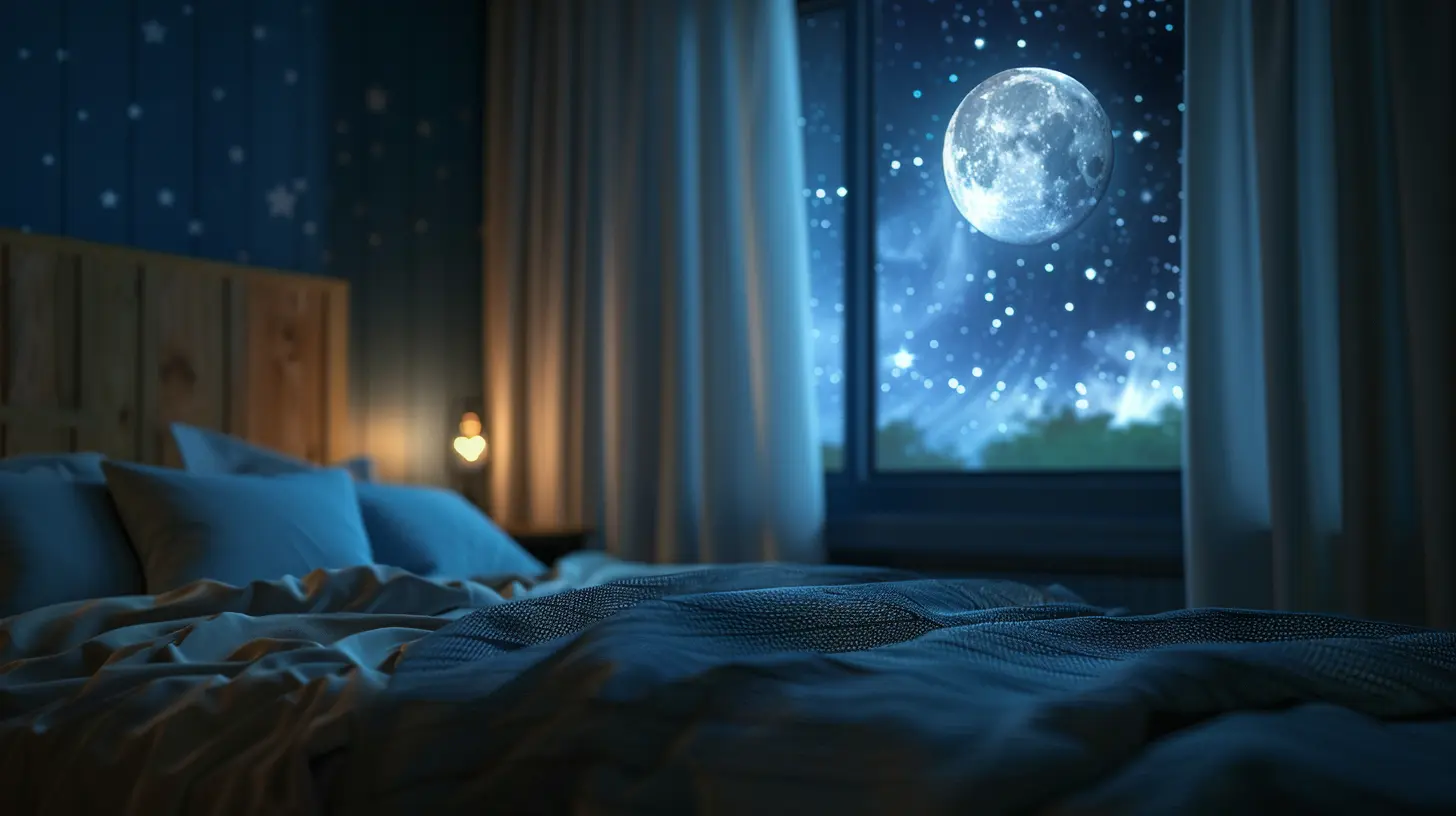The Role of Melatonin in Regulating Sleep and Wakefulness
31 December 2024
Ever wondered why you get sleepy at night and wide awake during the day? It’s not magic; your body has its own internal clock, and one of the key players in keeping that clock ticking on time is a hormone called melatonin. Think of melatonin as the conductor of your body’s orchestra, keeping everything in rhythm when it comes to sleep and wakefulness.
In this article, we’ll dive deep into what melatonin is, how it impacts your sleep patterns, and why it’s such a hot topic in the world of health and wellness. By the end, you’ll not only understand melatonin but also know how to hack it for better sleep. Sound good? Let’s get started!
What Is Melatonin, Anyway?
Alright, let’s break it down. Melatonin is a hormone produced by a tiny pea-shaped gland in your brain called the pineal gland. Sounds fancy, right? But here’s the deal—it’s not always active. This little gland hits its stride when the sun goes down, cranking out melatonin as darkness settles in. Why? Because melatonin’s main job is to signal to your body that it’s time to wind down and rest.Think of melatonin as your body’s natural "night light." When it gets dark, melatonin production ramps up. When daylight hits, it takes a backseat. This process is deeply connected to your body’s circadian rhythm, which is basically your internal 24-hour clock.
Why Is Melatonin So Important?
If you’ve ever pulled an all-nighter or traveled between time zones, you know how out of whack your body can feel. That’s your circadian rhythm crying out for help! Melatonin plays a huge role in keeping this rhythm steady. Here’s the big picture:- Regulates Sleep Cycle: Melatonin helps you fall asleep faster and stay asleep longer. It’s like a gentle nudge for your body to relax and drift off.
- Supports Wakefulness: When melatonin levels drop in the morning, your body gets the signal to wake up and get moving.
- Acts as a Timekeeper: Melatonin works as your internal clock, syncing your body’s functions with the outside world—light and dark cycles.
How Does Melatonin Work?
Let’s get a bit science-y (but not too much, promise). Melatonin isn’t produced in isolation—it depends on your exposure to light, specifically a lack of it. When darkness falls, your retina (the part of your eye that detects light) sends a signal to your brain’s suprachiasmatic nucleus (SCN). The SCN then tells the pineal gland, “Hey, it’s nighttime—let’s make melatonin!”Once released, melatonin travels through your bloodstream and cerebrospinal fluid, bathing your body in relaxation vibes. It lowers your body temperature, slows your metabolism, and makes you feel drowsy. Basically, it’s the ultimate signal that it’s time to hit the hay.
Can Melatonin Be Boosted Naturally?
You bet! The good news is there are plenty of ways to encourage your body to produce more melatonin without popping any pills. Here are some easy tips:1. Stick to a Sleep Schedule
Your body thrives on routine. Try to go to bed and wake up at the same time every day, even on weekends. Think of your sleep schedule like a well-oiled machine—it works best when it’s consistent.2. Dim the Lights in the Evening
Light, especially blue light from screens, can mess with melatonin production. Switch off your electronics at least an hour before bed, or use blue light-blocking glasses. Can’t kick the Netflix habit? Try dimming your room lights to signal to your brain that bedtime is near.3. Get Morning Sunlight
Exposure to natural sunlight during the day helps regulate your circadian rhythm and, in turn, melatonin production. Aim for at least 15–30 minutes of sun in the morning. It’s like giving your internal clock a wake-up call!4. Avoid Late-Night Snacks
Believe it or not, eating too close to bedtime can interfere with melatonin production. Try to finish your meals a couple of hours before hitting the sheets.5. Incorporate Relaxing Routines
Whether it’s yoga, meditation, or reading a book, calming activities before bed can help your body gear up for sleep. Think of this as putting your brain into airplane mode.What About Melatonin Supplements?
Okay, let’s address the elephant in the room: melatonin supplements. They’re everywhere these days, promising to fix all your sleep woes. But are they worth it?Pros of Melatonin Supplements:
- Helpful for Jet Lag: Melatonin can reset your internal clock when you’re bouncing between time zones.- Short-Term Fix: If you’re struggling with occasional insomnia, a melatonin supplement can give you a gentle nudge toward sleep.
Cons of Melatonin Supplements:
- Not a Long-Term Solution: Relying on melatonin every night can backfire, as your body may produce less of it naturally over time.- Side Effects: While rare, some people report grogginess, headaches, or vivid dreams after taking melatonin.
- Dosage Confusion: The right amount varies per person, and too much melatonin can do more harm than good.
So, should you try it? Maybe—but it’s always a good idea to chat with your doctor first, especially if you’re taking other medications or have underlying health issues.
Melatonin, Sleep Disorders, and Modern Life
Here’s the kicker: Modern lifestyles aren’t exactly melatonin-friendly. With endless screen time, late-night Netflix binges, and the constant hustle, it’s no wonder so many people are struggling to sleep.This lack of sleep isn’t just about feeling groggy the next day—it’s linked to serious health problems like obesity, heart disease, and weakened immunity. And guess what? Melatonin is often at the center of these struggles.
For instance:
- Shift Work: If you work odd hours, your natural melatonin production may take a hit, leading to sleep disorders.
- Overexposure to Light Pollution: Living in urban areas with constant artificial lighting disrupts melatonin’s release.
- Stress: Chronic stress can interfere with your body’s ability to produce melatonin and stick to a natural sleep-wake cycle.
When Melatonin Goes Haywire
While melatonin is your sleep BFF, there’s a flip side to the coin. Too much or too little melatonin can throw you out of balance. Here’s what happens when things go haywire:- Melatonin Deficiency: Linked to insomnia, anxiety, and even depression. Aging also plays a role in declining melatonin levels.
- Excess Melatonin: Can cause grogginess during the day or affect your body’s natural rhythm over time. It's not about having the most; it’s about having just enough.
The Takeaway on Melatonin
Melatonin is like your body’s bedtime whisperer—it helps you settle into a natural sleep-wake cycle and stay in sync with the world around you. But even though it’s powerful, it’s not a magic wand. You need to work with your body, not against it, by creating an environment that supports melatonin production.Here’s the bottom line: Want better sleep? Start with the basics—ditch the screens at night, soak up some sunshine during the day, and stick to a consistent routine. And if you’re still having trouble, melatonin supplements might be worth a shot (but don’t overdo it!).
Now that you know all about melatonin, go ahead and tune your sleep orchestra to perfection. Sweet dreams!
all images in this post were generated using AI tools
Category:
Sleep HealthAuthor:

Tiffany Foster
Discussion
rate this article
13 comments
Natalia McClintock
In twilight's embrace, melatonin weaves dreams, guiding us through night's tender realm, where sleep and wakefulness dance in harmony.
February 16, 2025 at 5:15 PM

Tiffany Foster
Thank you for your poetic reflection! It beautifully captures melatonin's essential role in balancing sleep and wakefulness.
Zaren Malone
This article effectively highlights melatonin's dual role in sleep regulation, yet underemphasizes lifestyle factors influencing its efficacy. A holistic approach considering environment and habits could enhance understanding of sleep-wake cycles beyond hormonal mechanisms.
February 3, 2025 at 6:02 PM

Tiffany Foster
Thank you for your insightful comment! I appreciate your emphasis on the importance of lifestyle factors in sleep regulation and will consider incorporating a more holistic perspective in future discussions.
Finley Franco
Melatonin: Your sleep's best buddy!
January 31, 2025 at 3:33 AM

Tiffany Foster
Thank you! Melatonin truly plays a crucial role in promoting healthy sleep patterns.
Preston Reese
Melatonin, often dubbed the "sleep hormone," not only orchestrates our circadian rhythms but also reflects our intrinsic connection to nature’s cycles. Understanding its role invites deeper contemplation on how modern lifestyles disrupt this harmony, urging us to seek balance in an increasingly artificial world.
January 24, 2025 at 3:31 PM

Tiffany Foster
Thank you for your insightful comment! Indeed, melatonin's role extends beyond sleep regulation to highlight the importance of aligning with natural rhythms, especially in our modern, fast-paced lives.
Icarus McDaniel
This article sheds light on melatonin's fascinating impact on sleep patterns! I'm intrigued by how this hormone influences our daily rhythms and the potential for natural sleep aids. Exciting read!
January 20, 2025 at 4:58 AM

Tiffany Foster
Thank you for your kind words! I'm glad you found the article informative and intriguing. Melatonin's role in sleep regulation is indeed fascinating!
Zephyros Lewis
In the dance of night and day, melatonin whispers peace, guiding our restless souls to tranquil dreams, where sleep's embrace reveals.
January 16, 2025 at 3:58 PM

Tiffany Foster
Thank you for beautifully capturing the essence of melatonin's role in our sleep cycles! Your poetic perspective adds depth to the understanding of its calming influence.
June Brooks
Thank you for shedding light on melatonin's vital role in sleep regulation. Understanding its impact can empower those struggling with sleep issues, fostering hope and offering pathways to better rest and overall well-being.
January 11, 2025 at 5:01 PM

Tiffany Foster
Thank you for your thoughtful comment! I'm glad the article resonated with you and can help others on their journey to better sleep.
Callista Wells
Great article! Understanding melatonin's role can really help improve our sleep quality and overall health.
January 7, 2025 at 3:48 PM

Tiffany Foster
Thank you! I'm glad you found the article helpful in understanding melatonin's impact on sleep quality and health.
Winter Franklin
Melatonin: Nature's sleep-wake maestro.
January 4, 2025 at 3:21 AM

Tiffany Foster
Thank you! Melatonin indeed plays a crucial role in orchestrating our sleep-wake cycles.
Carmen Good
Who knew sleep could have a superstar? 🌟 Melatonin is like the fairy godmother of our bedtime routine, waving its wand to whisk us off to dreamland. Let's give a round of applause for our sleep’s best friend!" 💤👏
January 3, 2025 at 4:36 PM

Tiffany Foster
Thank you! Melatonin truly is a game-changer for our sleep routines, helping us drift into dreamland with ease. 🌙✨
Caroline McDowell
Melatonin is crucial for synchronizing our circadian rhythms, enhancing sleep quality, and promoting overall health. Understanding its role can empower us to improve our sleep hygiene effectively.
January 3, 2025 at 5:22 AM

Tiffany Foster
Thank you for highlighting the importance of melatonin! It's indeed essential for regulating our sleep patterns and overall well-being.
Katalina Cannon
Melatonin's influence on sleep is profound, yet individual variations complicate its effectiveness for everyone.
January 1, 2025 at 4:22 AM

Tiffany Foster
Thank you for your insightful comment! Indeed, while melatonin plays a significant role in sleep regulation, individual responses can vary widely, highlighting the importance of personalized approaches to its use.
Murphy Torres
This article effectively highlights melatonin's crucial role in regulating sleep-wake cycles. By exploring its production, mechanisms, and potential benefits, it underscores the significance of melatonin as a natural sleep aid and its impact on overall health. A must-read for better sleep!
December 31, 2024 at 4:13 AM

Tiffany Foster
Thank you for your thoughtful feedback! I'm glad you found the article informative and helpful for understanding melatonin's role in sleep regulation.
MORE POSTS

Emotional Intelligence: Building Better Relationships with Yourself

The Role of Nutrition in Supporting Mental Health

Healthy Eating Habits to Incorporate into Your Busy Schedule

Raising Active Kids: How to Motivate Your Child to Move Daily

How Meditation Can Help You Sleep Better

The Role of Superfoods in Weight Management

Strength Training with Limited Equipment: Home Workout Tips

Eco-Friendly Grocery Shopping for Plant-Based Diet Enthusiasts

The Connection Between Personal Growth and Weight Loss